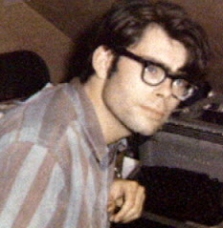
April 30, 2013 marks the 68th birthday of Annie Dillard, best known as the author of PILGRIM AT TINKER CREEK, which won the 1975 Pulitzer Prize for General Nonfiction. Dillard spent decades as a creative writing professor — and captured many of her insights in THE WRITING LIFE, a collection of short essays published in 1990.
Here are some excerpts from what I consider one of the best books about writing — for its insider tips, advice, inspiration, and motivation…
“One of the things I know about writing is this: spend it all, shoot it, play it, lose it, all, right away, every time. Do not hoard what seems good for a later place in the book or for another book; give it, give it all, give it now. The impulse to save something good for a better place later is the signal to spend it now. Something more will arise for later, something better.”
“A work in progress quickly becomes feral. It reverts to a wild state overnight. It is barely domesticated, a mustang on which you one day fastened a halter, but which now you cannot catch. It is a lion you cage in your study. As the work grows, it gets harder to control; it is a lion growing in strength. You must visit it every day and reassert your mastery over it. If you skip a day, you are, quite rightly, afraid to open the door to its room. You enter its room with bravura, holding a chair at the thing and shouting, ‘Simba!’”
“There is neither a proportional relationship, nor an inverse one, between a writer’s estimation of a work in progress & its actual quality. The feeling that the work is magnificent, & the feeling that it is abominable, are both mosquitoes to be repelled, ignored, or killed, but not indulged.”
THE WRITING LIFE is available at Amazon.com.













